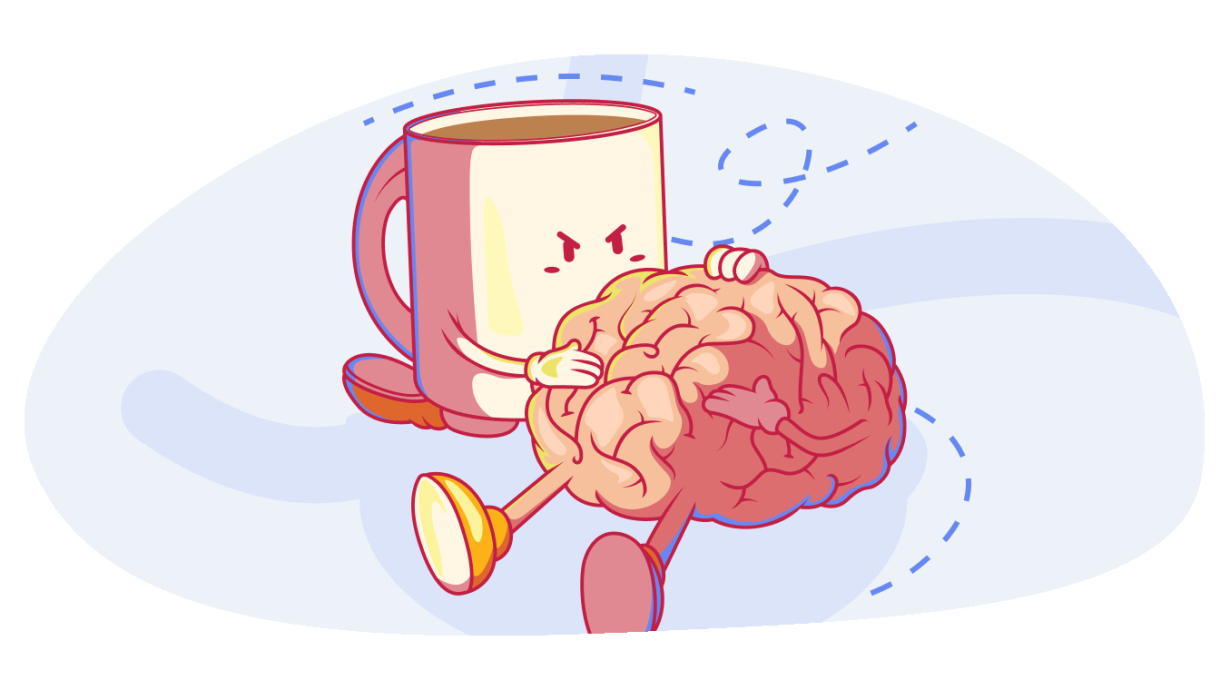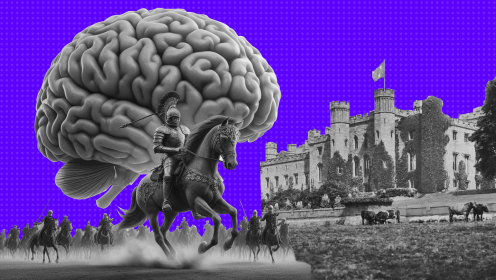Substances contained in the foods you eat affect all systems of your body: from the circulatory to the digestive. In particular, they affect the arteries, blood vessels and brain. Harmful substances in food reduce intelligence and impair memory, and also cause brain diseases - its premature aging, Alzheimer's disease and dementia.
If everything is OK with your digestion and metabolism, this does not mean that you are out of the risk zone, and the brain will not work worse over the years. Associate professor of neurology and radiology at Cornell University, Lisa Mosconi, argues that the brain suffers from malnutrition much more than any other organ.
“When we eat fatty, sugary foods and experience symptoms such as lethargy, brain fog and drowsiness, these symptoms do not occur in the stomach, but in the brain.” - Lisa Mosconi.
The connection between the brain and the intestines has long been proven. The intestines suffer - suicidal thoughts, apathy, anxiety, stress appear. And the wrong food increases blood pressure, thickens the walls of the carotid artery and does a lot more bad things, provoking all this mess with a drop in productivity. Therefore, it is important to monitor nutrition not only so as not to writhe from gastritis and other diseases of the gastrointestinal tract, but also so that the brain does not suffer.

What foods should be excluded
It is a thankless task to paint which specific foods you should not eat - there are so many of them now and so many appear every day that it simply will not work to cover everything. Therefore, I will talk about the substances that are found in "bad" foods. So it will be easier for you to figure out what is worth eating and what is not.
Trans fats and other saturated fats
There are three types of fats - unsaturated, saturated and trans fats. Saturated fats are found in all fatty foods - cheese, lard, cream, dairy products, butter, fatty meats, sausages, palm and coconut oil, ice cream, etc.
Trans fats are found in small amounts in meat and milk, and in large quantities (when they become completely harmful) they appear artificially, in particular as a result of hydrogenation - vegetable oil is fried at a high temperature, releasing hydrogen. So the butter becomes denser in consistency, like butter, but cheaper. Trans fats are also released at home when you fry something at a high temperature. That is why it is important to change the oil frequently.
The end product after hydrogenation is called salamas and is used in confectionery products - creams, chocolate, cookies, icing, etc. As well as in fast food, convenience foods, margarine, mayonnaise, and pastries.
Experts from the American Academy of Neurology have shown that a diet high in trans fats reduces thinking ability, and the cholesterol contained in trans fats clogs the arteries, increasing the risk of developing Alzheimer's, a brain disease that reduces the level of intelligence and impairs memory.
Salt
Monosodium glutamate is a dietary supplement and a salt of glutamic acid. Found in chips, crackers, soy sauce and Chinese food, doshirak and even mushrooms, adding richness to the taste. When abused, it causes hypertension - a syndrome of high blood pressure, which appears due to vasoconstriction, which impedes blood flow, which increases pressure on the walls of blood vessels. And hypertension limits blood flow to the brain, impairing memory and concentration. So chips are only on holidays.
There is also an excess of salt in sausages: bacon, sausages, sausage, boiled pork, etc. In addition to salt, there is also a lot of saturated fat and protein. More water is needed to flush out the natural nitrogen found in salt and proteins from the body, otherwise dehydration may occur. And dehydration reduces cognitive abilities (your brain is 75-80% water). Salt in moderation is not so terrible, so it is better not to abuse it.
Simple carbohydrates
Carbohydrates are energy. They are needed so that you always have strength, and the body has energy to work. Carbohydrates are simple and complex.
Complex ones give up their energy gradually, therefore they are a more “correct” source of it.
Simple carbohydrates (disaccharides and monosaccharides) are digested faster and throw out all the energy at once - part of the energy that is not needed right now, the body stores in the form of fat (hello, overweight), and lives on the other, but not for long and requires more .. Simple carbohydrates have a high glycemic index - such products, entering the bloodstream, raise the level of glucose. That is why after a piece of cake after 30 minutes you want to eat again. Simple carbohydrates include sugar, glucose, fructose, maltose (found in beer, marmalade, honey, etc.), lactose (found in dairy products), as well as all kinds of fast food and baked goods (yes, I already mentioned it in the trans fat block , but it is a symbiosis of trans fats and simple carbohydrates).
Sugar destroys healthy gut bacteria in the microbiome and also raises blood pressure, impairing thinking ability. The arteries lose their elasticity, preventing blood flow to the brain, and the walls of the carotid artery thicken, impairing memory in adulthood. Also, sugar consumption increases the risk of the same Alzheimer's disease. And dopamine, the happiness hormone released from eating sugar, is addictive, which, if you refuse, provokes headaches, tremors, and anxiety.
Carbonated drinks without sugar
The sugar substitute often used in "sugar-free" carbonated drinks is called aspartame. There is a study according to which this sweetener leads to memory impairment and introduces the brain into a state of stress.
Alcohol
Ethyl alcohol contained in alcohol penetrates the brain, including the cerebral cortex, killing thousands of nerve cells. Because of alcohol, blood vessels burst and there is a risk of thrombosis. With its regular use, the brain shrinks, the surface becomes covered with scars and ulcers, and the likelihood of bleeding increases. I'm not saying that a glass of dry wine causes irreparable harm, but it is dangerous to abuse alcohol.
Tuna
Tuna contains a lot of mercury (but not deadly). This is due to its habitat and diet, so it is better not to press on it - neither on canned food, nor on fresh fish - mercury accumulates in the body, poisons it and, among other things, negatively affects cognitive abilities.
In short, the diet needs to be changed.
It is difficult to give up your favorite foods - the body has already developed an addiction and at first it will seem that there is nothing corny to eat. Therefore, I recommend refusing gradually - I adhere to proper nutrition, but I allow sweets and fast food, and sometimes I go to large gluttons.
To improve brain function, add unsaturated fats (yolks, avocados, olive, coconut, linseed and butter, etc.), proteins and some complex carbohydrates (brown rice, vegetables, buckwheat, etc.) to your diet. Pay attention to superfoods - products with brain-healthy components that improve cognitive functions, memory and prevent brain diseases from developing. These include: broccoli, eggs, blueberries, beets, walnuts, turmeric, and spinach.
It is better to give up dairy products, which cause heaviness, bloating and inflammation in the intestines. Also, heaviness and bloating is a sign of poor bile flow, which increases the weakness of the body, fatigue and impairs brain function.


















